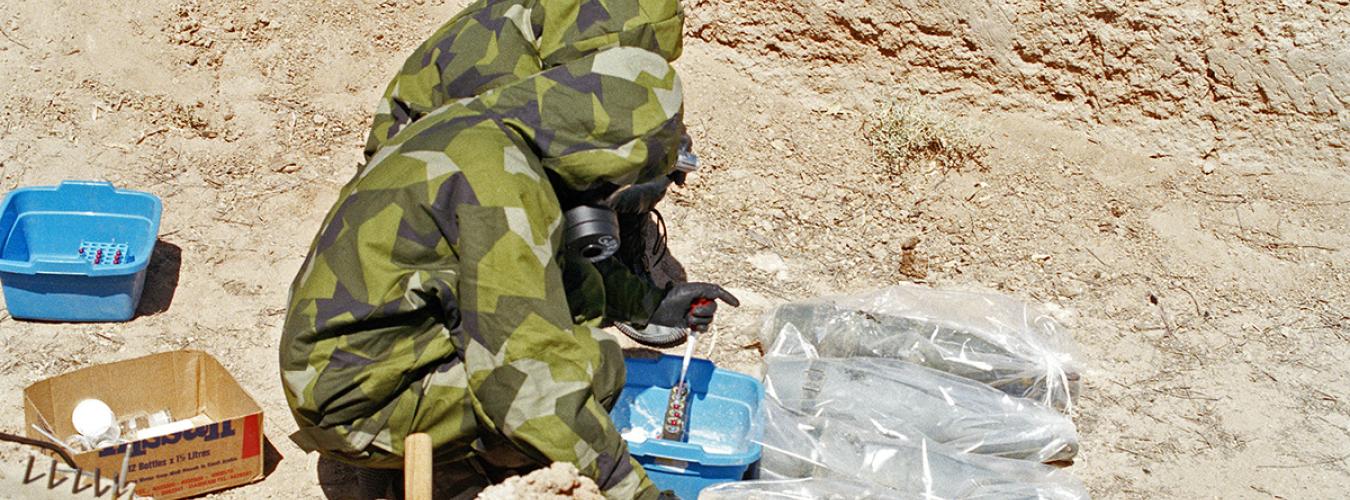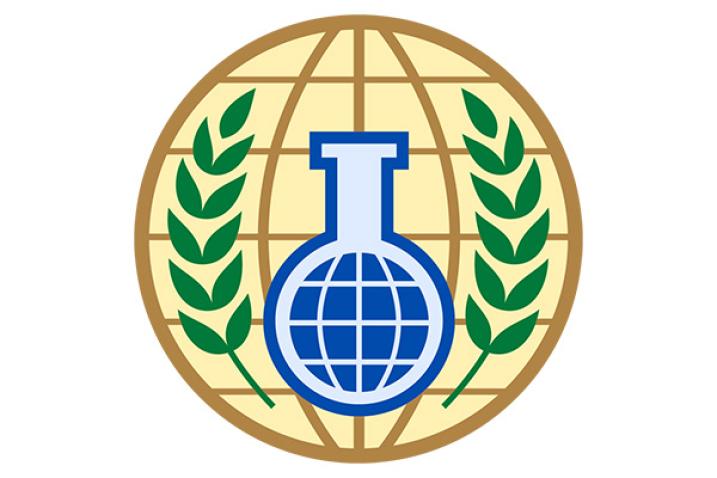The Conference of the States Parties to the Chemical Weapons Convention, at its 20th Session, decided that a memorial Day of Remembrance for all Victims of Chemical Warfare would be observed on 30 November each year or, when appropriate, on the first day of the regular session of the Conference.
This commemoration provides an opportunity to pay tribute to the victims of chemical warfare, as well as to reaffirm the commitment of the Organisation for the Prohibition of Chemical Weapons (OPCW) to the elimination of the threat of chemical weapons, thereby promoting the goals of peace, security, and multilateralism.
The Third Review Conference of States Parties to the Chemical Convention held 8-19 April 2013 in the Hague, the Netherlands, adopted by consensus a political declaration that confirms the “unequivocal commitment” of the States Parties to the global chemical weapons ban, and a comprehensive review of CWC implementation since the last Review Conference in 2008, which also maps out the OPCW’s priorities for the coming five years.
Background
The history of the serious efforts to achieve chemical disarmament that culminated in the conclusion of the Chemical Weapons Convention began more than a century ago. Chemical weapons were used on a massive scale during World War I, resulting in more than 100,000 fatalities and a million casualties.
However, chemical weapons were not used on the battleground in Europe in World War II. Following World War II, and with the advent of the nuclear debate, several countries gradually came to the realisation that the marginal value of having chemical weapons in their arsenals was limited, while the threat posed by the availability and proliferation of such weapons made a comprehensive ban desirable.
Adopted in 1993, the Chemical Weapons Convention entered into force on 29 April 1997. It determined, “for the sake of all mankind, to exclude completely the possibility of the use of chemical weapons.” (Preamble)
The States Parties to this Convention established the Organisation for the Prohibition of Chemical Weapons “to achieve the object and purpose of this Convention, to ensure the implementation of its provisions, including those for international verification of compliance with it, and to provide a forum for consultation and cooperation among States Parties.” (Article VIII).
Learn more about the OPCW's work in supporting victims of chemical weapons.
Resources
Documents
Disarmament
- Disarmament (Global Issues)
- GA First Committee (Disarmament and International Security)
- UN Disarmament Commission
- Conference on Disarmament
- United Nations Office for Disarmament Affairs (UNODA)
- 1540 Committee
- United Nations Institute for Disarmament Research (UNIDIR)




